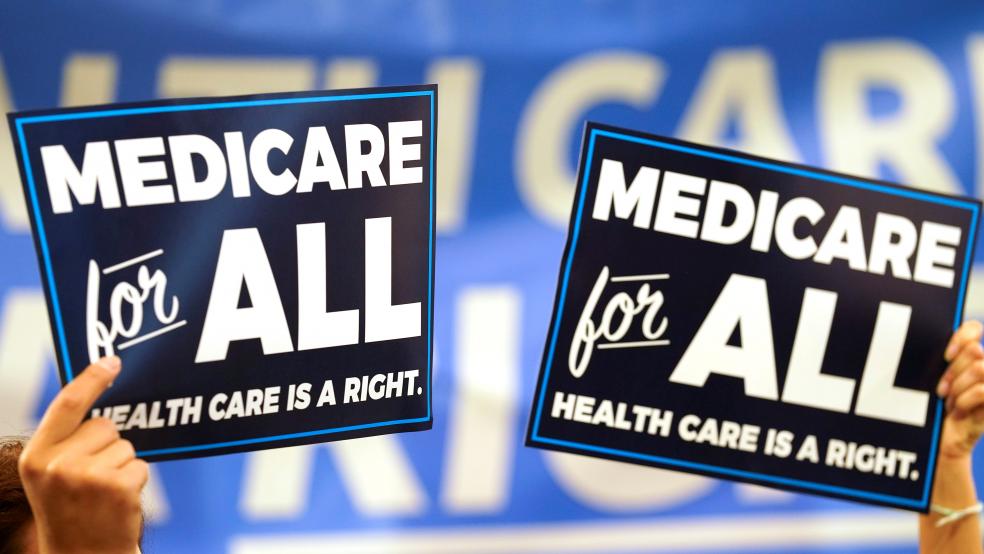A Medicare for All system would likely lower health care costs and save the United States money, both in its first year and over time, according to a review of single-payer analyses published this week in the online journal PLOS Medicine.
The authors reviewed 18 economic analyses of the cost of 22 national and state-level single-payer proposals over the last 30 years. They found that 19 of the 22 models predicted net savings in the first year and 20 of 22 forecast cost reductions over several years, with the largest of savings simplified billing and negotiated drug prices.
"There is near-consensus in these analyses that single-payer would reduce health expenditures while providing high-quality insurance to all US residents,” the study says. It notes that actual costs would depend on the specifics features and implementation of any plan.
The peer-reviewed study’s lead author, Christopher Cai, a third-year medical student at the University of California, San Francisco, is an executive board member of Students for a National Health Program, a group that supports a single-payer system.
Questions about methodology: “This might be the worst 'academic' study I've ever read,” tweeted Marc Goldwein, head of policy at the Committee for a Responsible Federal Budget. “It's a glorified lit review of 22 studies - excluding 6 of the most important on the topic and including 11 that are redundant, non-matches, or from the early 90s.” The results would look quite different if the authors had made different choices about what analyses to include in their review.
What other studies have found: Other recent analyses have been far less conclusive about how health care spending might change under a single-payer system. The nonpartisan Congressional Budget Office said last year that total national health care spending under Medicare for All “might be higher or lower than under the current system depending on the key features of the new system, such as the services covered, the provider payment rates, and patient cost-sharing requirements.”
An October analysis by the Urban Institute and the Commonwealth Fund, meanwhile, found that a robust, comprehensive single-payer system would increase national health spending by about $720 billion in its first year, while federal spending on health care would rise by $34 trillion over 10 years. But a less generous single-payer plan would reduce national health spending by about $210 billion in its first year.





